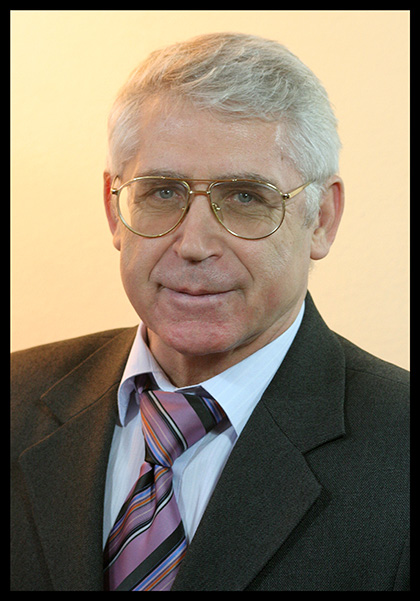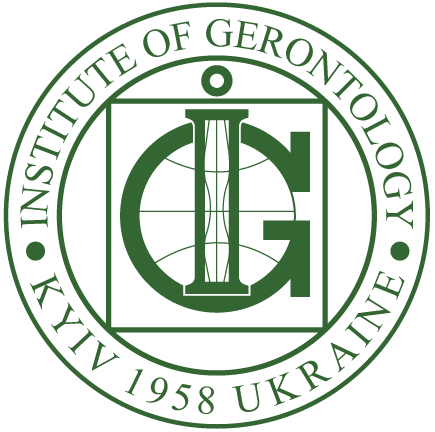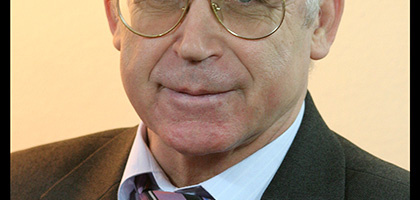
On September 16, 2023, after a serious illness, the distinguished Ukrainian gerontologist, academician of the National Academy of Medical Sciences of Ukraine, professor, doctor of medical sciences, Honored Worker of Science and Technology of Ukraine, and the director of the State Institution “D.F. Chebotarev Institute of Gerontology of the National Academy of Medical Sciences of Ukraine,” Vladislav Viktorovich Bezrukov, passed away.
Farewell to Vladyslav Bezrukov will take place on September 19, in the large conference hall of the Institute of Gerontology.
Vladislav Viktorovich led the institution for over 35 years. He guided it with dignity through significant political and economic changes in Ukraine, constantly developing its scientific potential. Today, the Institute is one of the scientific leaders of the National Academy of Medical Sciences of Ukraine.
Vladislav V. Bezrukov was born on February 25, 1940. He studied at the Suvorov Military School. In 1958, he entered the O.O. Bogomolets Kyiv Medical Institute, from which he graduated with honors in 1963. He worked as a surgeon at the Cherkasy Regional Hospital.
In 1965, Vladislav Bezrukov was enrolled to the postgraduate program in the Laboratory of Physiology at the Institute of Gerontology, where, under the guidance of Professor V.V. Frolkis, he worked on his candidate’s dissertation, dedicated to the age-related peculiarities of the central regulation of the cardiovascular system’s functions. It was during this stage that the sphere of his leading scientific interests was determined – the study of the mechanisms of aging of the central nervous system and its role in the development of pathological processes in old age. In the following years, Vladislav Viktorovich worked as a junior and then senior research scientist in the same laboratory. In 1970, he defended his candidate’s dissertation (PhD), and in 1982, his doctoral dissertation, where he first subjected the age-related functional changes of the leading regulatory center of the CNS – the hypothalamus – to comprehensive analysis. The scientist obtained data for the first time about uneven changes in the excitability of individual hypothalamic nuclei, their increased sensitivity to the action of certain humoral factors. This leads to the emergence of “hypothalamic disinformation” regarding the state of the body’s internal environment, which, in turn, leads to disturbances in regulation and homeostasis.
In 1983, Vladislav Viktorovich was seconded to the United Nations Center for Social Development and Humanitarian Affairs in Vienna, Austria, where he worked in the Aging Issues Division as a senior advisor to the Ministry of Foreign Affairs of Ukraine until the beginning of 1988. During his tenure at the UN Center, he actively participated in the organization and conduct of various international forums on gerontology and social issues, including the United Nations Interregional Seminar on Aging held in Kiev (now – Kyiv) in 1985. Over five years, he gained extensive experience in the field of social gerontology and the organization of medical and social support for the elderly. This phase concluded with Vladislav Viktorovich’s return to the Institute of Gerontology and his election as its director in 1988.
For a long period, V.V. Bezrukov headed the Laboratory of Social Gerontology at the institute (1989-2004), where he creatively implemented the experience he gained during his work at the UN Center and applied it in Ukraine.
After the death of Academician V.V. Frolkis in 1999, Vladislav Viktorovich took over the Laboratory of Physiology at the Institute of Gerontology as the main laboratory for the study of fundamental aging mechanisms. For many years, he continued to develop the traditions of the scientific school of Academician V.V. Frolkis. Lifespan and the rate of aging are largely determined by the body’s adaptive capabilities and resilience to various damaging factors. Therefore, under Vladislav Viktorovich’s guidance, the laboratory conducted research on studying age-related features of physiological, biochemical, and immunological responses of the body to damaging factors and the development of experimental age-related pathology, as well as the development of corrective measures. Over time, the Physiology Laboratory transformed into the Department of Aging Biology and Experimental Life Extension, which addresses important questions in experimental gerontology in the complex conditions of the present day.
The full-scale war unleashed by the Russian Federation against Ukraine forced the institute’s team to switch to providing assistance to people affected by military actions and to intensify scientific research relevant to wartime. As a result, technologies were developed to expedite wound healing, methods for stress control related to the war were established, and a comprehensive rehabilitation program for individuals who suffered from mine-explosive injuries was created.
While in the conflict zone in February-March 2022, the Institute continued to provide medical assistance to the population and the military. At the initiative of Vladislav Viktorovich, a mobile medical brigade was also formed consisting of doctors and scientists to provide medical aid to people affected by the war who were located in the occupied territories.
Under the leadership of Academician V.V. Bezrukov, innovative developments were carried out in the direction of creating new methods for extending life in experiments, searching for new means capable of ensuring high organism viability under stress conditions, and increasing the duration and quality of life. New drugs with cardioprotective and geroprotective effects (“Korargin,” “Neurogerin,” “Orion”) were developed, along with new effective approaches to the treatment of age-related pathology based on stem cell therapy. Using neural network algorithms (artificial intelligence), a technology was developed for determining the pace and profile of the organism’s aging, which allows for diagnosing early signs of accelerated aging in humans and timely applying relevant preventive measures to counteract age-associated pathologies.
The scientific achievements of the scholar are widely known among the global and Ukrainian scientific communities. He authored more than 600 scientific works, including 27 monographs and manuals, many of which were published abroad, and held four authorship certificates. Under his guidance, four doctoral and fifteen candidate dissertations were prepared.
Since 1995, Vladislav Viktorovich chaired the Scientific Medical Society of Gerontologists and Geriatrists of Ukraine and served as the chief editor of the journals “Problemy stareniya i dolgoletiya” and “Aging and Longevity.” He was a member of the editorial boards of numerous domestic and international scientific journals, the chairman of the specialized council for defending candidate and doctoral dissertations at the State Institution “D.F. Chebotarev Institute of Gerontology of the National Academy of Medical Sciences of Ukraine.” For many years, he served as an advisor to the WHO and the UN on issues related to the health of older people and was a member of the governing bodies of the International Association of Gerontologists and its European regional division. He also held honorary memberships in gerontological societies in several European countries.
Academician V.V. Bezrukov’s scientific and public activities were recognized with numerous awards. He was a recipient of the Order of Prince Yaroslav the Wise, 5th Class (2015), the title “Honored Worker of Science and Technology of Ukraine” (1998), the State Prize of Ukraine in Science and Technology (2003), the M.D. Strazhesko Prize of the National Academy of Sciences of Ukraine (2000), and the T.I. Yeroshevsky Prize of the International Center for Issues of Older People (2001). He was also honored with awards from the Verkhovna Rada of Ukraine, honorary diplomas from the Ministry of Health of Ukraine, the Presidium of the National Academy of Sciences of Ukraine, the Presidium of the Academy of Medical Sciences of Ukraine, the Honorary Diploma of the Council of the Organization of Veterans of Ukraine, and the Order of “Cadet Glory,” 1st Class.
Vladislav Viktorovich Bezrukov was a multi-talented individual, devoted to his work and his team. His authority among the institute’s staff was exceptionally high. In his personality, the talent of a scientist-intellectual was combined with that of a vivid artist, composer, and poet.
Everyone who knew him and had the opportunity to interact with him will deeply miss Vladislav Viktorovich.
The collective and administration of the State Institution “D.F. Chebotarev Institute of Gerontology of the National Academy of Medical Sciences of Ukraine” express their heartfelt condolences to the family of Vladislav Viktorovich. Eternal memory to our dear director, teacher, and friend…

